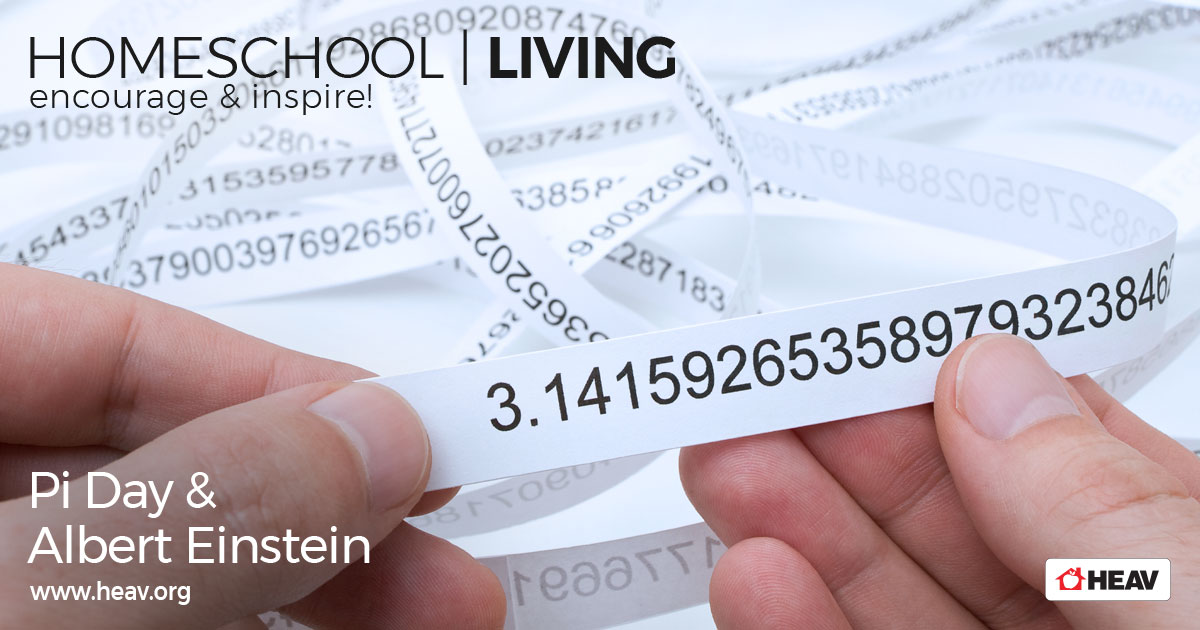Pi Day and Albert Einstein
Pi Day is a unique opportunity to explore math and science in a fun and memorable way. From exploring the history of pi and all of the ways it contributes to our world, to planning fun pi-(and pie-)themed activities, there are a ton of ways to celebrate this quirky holiday in your homeschool. As an extra fun fact, Pi Day also falls on Albert Einstein’s birthday, making it the perfect opportunity to learn about this iconic scientist and his groundbreaking contributions. Check out this Homeschool Living for some fun ways to celebrate Pi Day at home with some engaging activities and a few fun facts along the way!
Fun Facts About Pi and Pi Day
Pi, which represents the ratio of the circumference of a circle to its diameter, has been studied for thousands of years, yet it still remains a source of fascination. Did you know that pi is an irrational number? This means it never repeats or ends, making it an endless mystery! To learn more about pi, its history, and fun facts surrounding the day, check out NinePlanets.org, where you’ll find Pi Day jokes, trivia, and 101 fun facts to explore.
Fun Pi Day Activities
Who says Pi Day has to be confined to the classroom? Take Pi Day outside and explore the beauty of nature while connecting it to the world of math. The natural world is filled with circles, spheres, and curves that are great opportunities to tie in discussions about pi. For example, you can measure tree trunks, examine the roundness of rocks, or calculate the circumference of puddles left by the rain. If you’re looking for some unique outdoor activities, this guide on celebrating Pi Day in nature offers practical tips and ideas to help you bring math into the great outdoors.
Whether you’re baking pies or solving math puzzles, Pi Day offers plenty of fun ways to get kids excited about math. A great place to start is with the Pi Day celebration ideas listed on PiDay.org. You can hold a Pi recitation contest, create pi-themed art, or even hold a Pi Day race!
You can also try blending your math and language arts studies with some cute and easy “pi-ku” poetry. Similar to haiku poetry, which consist of three lines of five, seven, and five syllables, “pi-ku” poems consist of three lines of three, one, and four syllables. Check out these Pi Day poetry examples and inspiration to create your own lesson.
Albert Einstein and Pi Day
In addition to pi, Pi Day has another connection that makes it extra special: it’s also the birthday of Albert Einstein! This famous scientist is best known for his theory of relativity, which revolutionized our understanding of space, time, and gravity. While Pi Day wasn’t invented until 1988, decades after Einstein’s death, March 14 gives us an excellent opportunity to celebrate Einstein’s legacy and think about how mathematics plays such an important role in science. Check out this interview with Princeton University historian Michael Gordin for some interesting insight into the life and times of Albert Einstein as Princeton’s most famous resident.
Albert Einstein’s groundbreaking work in physics didn’t stop at his theory of relativity; he made significant contributions to our understanding of energy, the atom, and even the development of the atomic bomb. If you’re looking to learn more about Einstein’s scientific legacy, this resource from the American Museum of Natural History delves into his ideas on energy, the sun, and much more.
Megan Mora Fuentes
Enjoy this article?
For more insightful and encouraging homeschool related articles, homeschool living tips, and homeschool connections, visit our HEAV blog.









